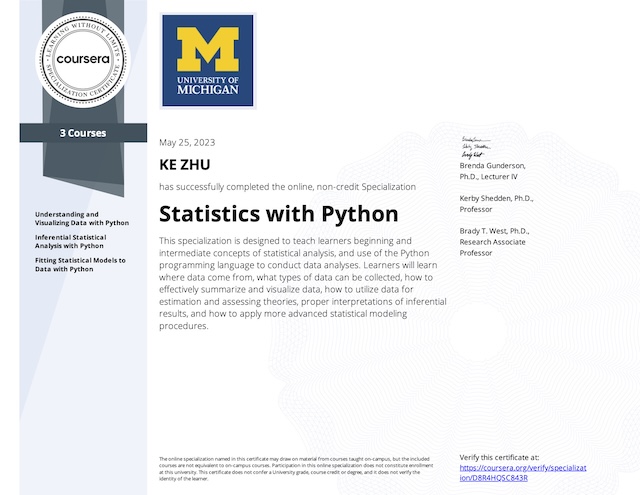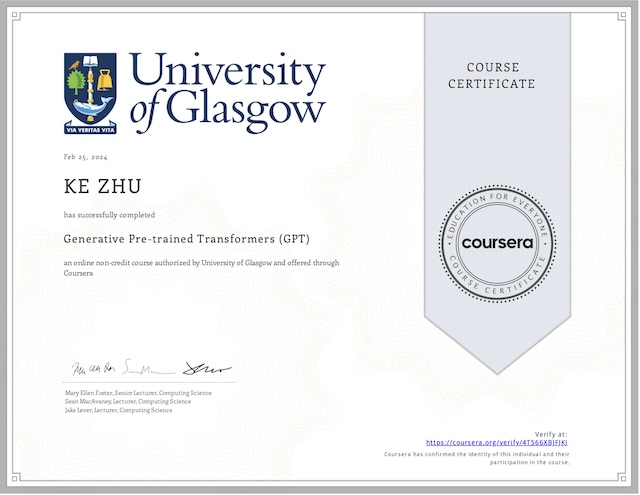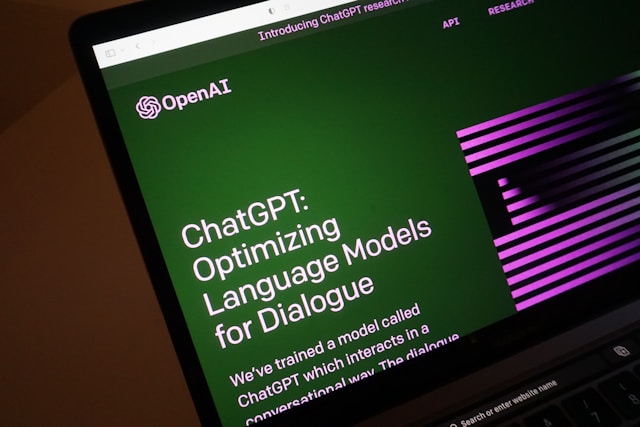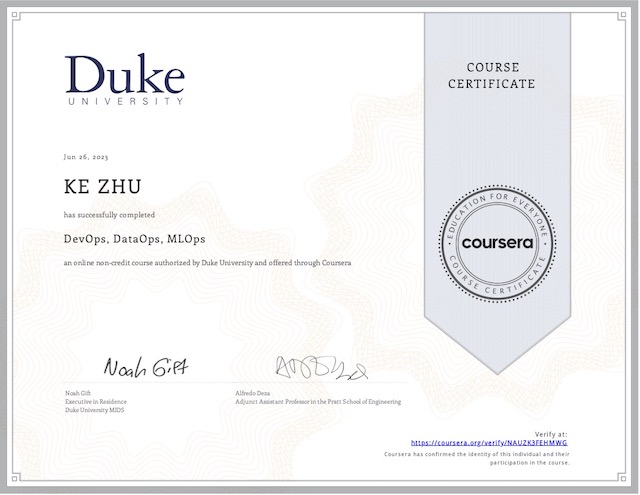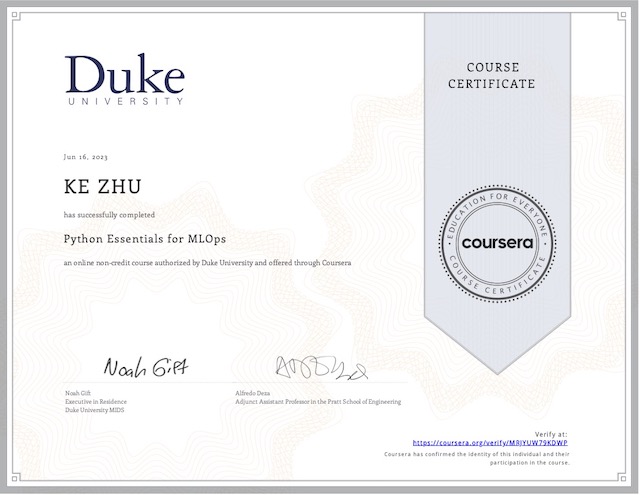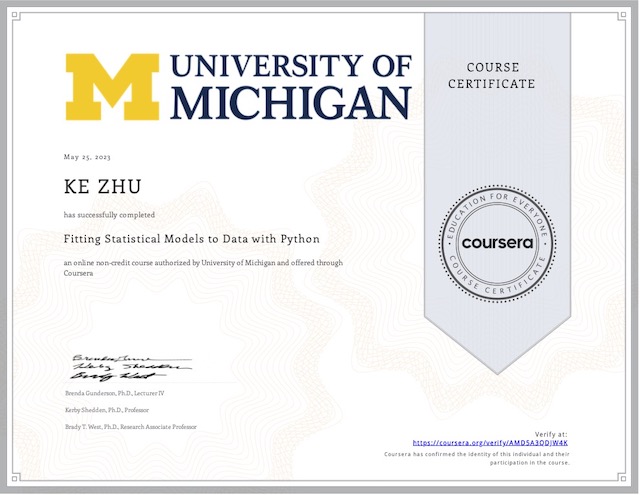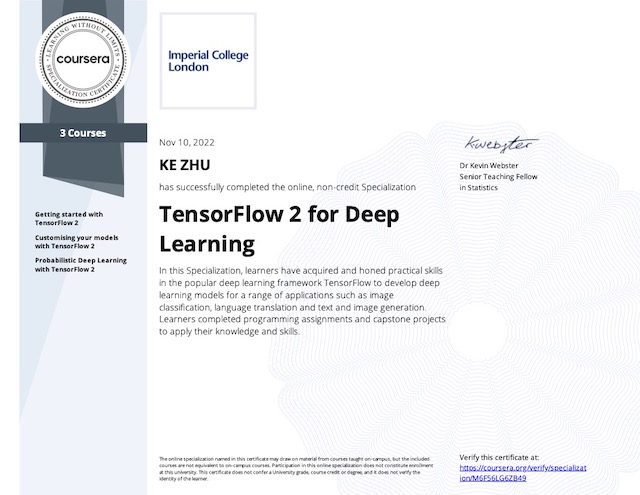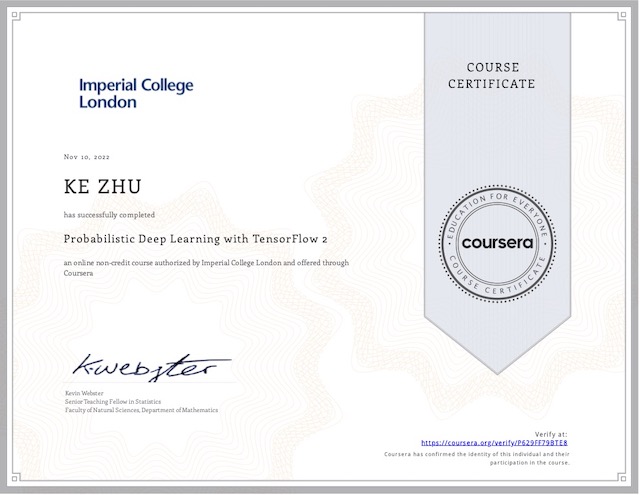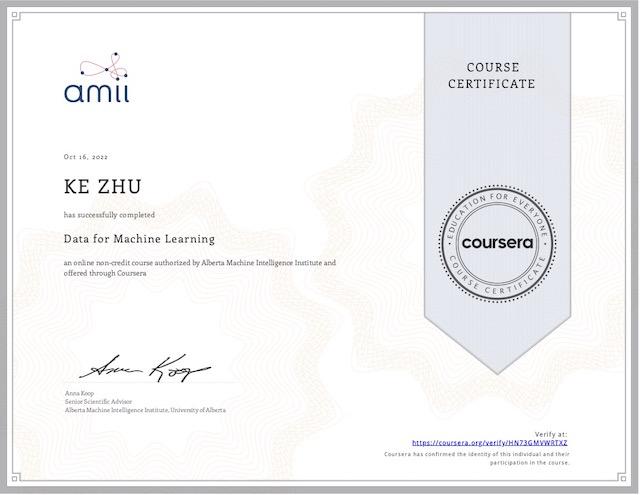Statistics with Python University of Michigan Python itself is more general purpose, while there are many other programming languages focus on statistics. However given the fact that Python has emerged as the undisputed champion in artificial intelligence and machine learning, which are so closed to statistics, learning statistics with Python is definitely worth the effort…
Category: Python
My 146th certificate from Coursera
Generative Pre-trained Transformers (GPT) University of Glasgow Scotland has been on my must-visit wish list for a long time. On my mind, it is full of myths, folklore and legends. When I found this course on Coursera, I enrolled in the blink of my eyes. This course is succinct, but informative. Should you have some…
GPT: Generative Pretrained Transformers
GPT stands for generative pretrained transformers. It is a type of language model which has been trained on a very large amount of text. It is capable of generating highly fluent text, making it applicable to a variety of tasks. “Generative” means GPT can generate something for you. “Pretained” refers to the fact that the…
My 136th certificate from Coursera
DevOps, DataOps, MLOps Duke University If you are kinda fed up with training models and would like to try some new perspectives and build some new skills, MLOps is a very good point to start with. I personal felt like falling down to a rabbit hole when I took this course. Nowadays, the ecosystem for…
Introduction to MLOps
You probably have known the DevOps methodology which is very commonly used in the software industry, which basically deploy your infrastructure programmatically, do continuous integration, test your code automatically, deploy the software continuously in production. Overall the software is constantly being updated with new features and then you have the ability to make changes in…
My 135th certificate from Coursera
Python Essentials for MLOps Duke University You will learn a lot from this course: Python language itself, PyTest , Pandas, Numpy, a few Frameworks and Cloud APIs. I can not agree more that some many skills together are needed to succeed in an MLOps role. The course first covers basics of programming languages (like data…
My 133rd certificate from Coursera
Fitting Statistical Models to Data with Python University of Michigan AI is combination of many different fields. Statistics definitely belongs to the group of the most fundamental ones. There are so many online courses, I never saw two courses that are teaching identical things. I can always learn something new. Before this course, I’ve never…
Multilevel Models vs Marginal Models
Logistic Regression Logistic regression is an extension to linear regression. When there are only only 2 options for the predicted values, like failed (0) or success (1), linear regression model is not appropriate. Instead, we will predict a transformed version of the probability of success. It is call the logit transformation where the logit function…
Fitting Parametric Models to Data
The purpose of fitting models to data is to help answer research questions. We specify models based on theory or subject matter knowledge and then we fit these models to the data that we’ve collected, assuming that the variables in our dataset follow distributions or have certain relationships. The models that we fit to the…
Hypothesis Testing
Typically we have some question, and that question could be “could the value of the parameter be X?” We could have some idea of what it could be but we’re not sure if that’s correct or not. Then, with that question we use data to try and support that claim or maybe go against that…
Confidence Intervals
We use data to do statistical inference means we either estimate some parameters with confidence, or test some theories or hypothesis about those parameters. Significance Level Consider an example, suppose we have 2 hypothesis: the Null and the Alternative. Also we have come up with a decision rule: after taking an observation of one sample…
My #8 specialization certificate from Coursera
TensorFlow 2 for Deep Learning Specialization Imperial College London Hooray! Now I completed the whole specialization! TensorFlow skill is definitely something needs years of endeavor to build. This specialization probably is not suitable for new comers, since many topics are really for those with solid knowledge of probability and Python programming skills. However completing these…
My #118 certificate from Coursera
Probabilistic Deep Learning with TensorFlow 2Imperial College London The focus of this course is the TensorFlow Probability library. Spoiler alert! Probability distributions are important factors you need to consider. From now on, building model is not only as simple as adding layers and squeezing your GPU to calculate various weights. This is challenging course. From…
Variational Autoencoders
The Variational Autoencoder (VAE) is an algorithm for inference and learning in a latent variable generative model. In it’s simplest form, it’s an unsupervised learning algorithm and like normalizing flows, the generative model can be used to create new examples similar to the data set. However, unlike normalizing flows, the generative model is not invertible…
My #114 certificate from Coursera
Data for Machine LearningAlberta Machine Intelligence Institute Do you agree that the skills of manipulating data is more important than building fancy models? I do believe so. Raw data is almost never ready to use, and they are only valuable only if being extracted and transformed properly. “Garbage in, garbage out”. Moreover live data expose…
